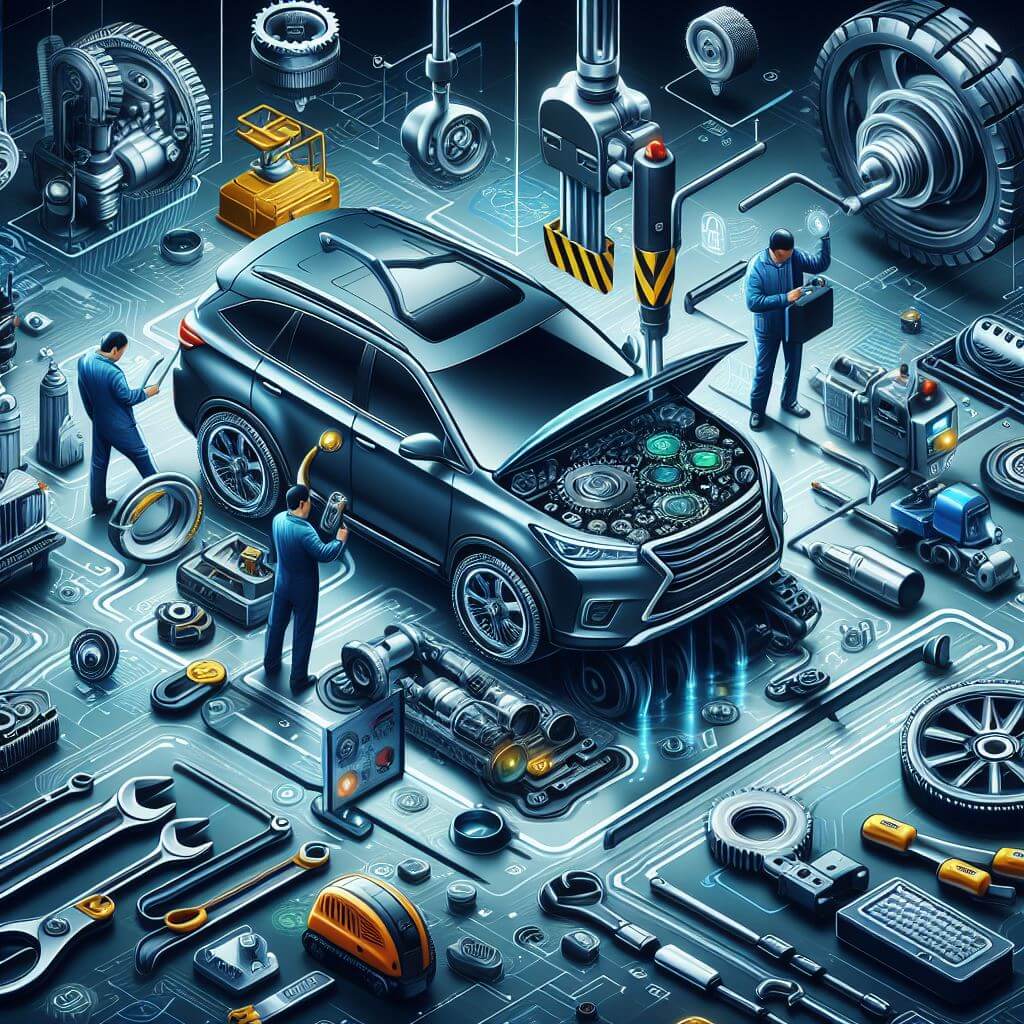The Importance of Regular Vehicle Maintenance for Safe Driving

Regular vehicle maintenance plays a crucial role in ensuring safe and efficient driving. By following a routine maintenance schedule, drivers can identify and address potential issues before they become major problems. Beyond enhancing safety, maintaining your vehicle also increases its longevity, preserves its value, and minimizes the risk of costly breakdowns. In this article, we will discuss the critical aspects of regular vehicle maintenance and the profound impact it can have on keeping you and your loved ones safe on the road.
Contents
Tire Maintenance
Tires are the direct point of contact between your vehicle and the road, making their upkeep a fundamental aspect of safe driving. Adequate tire pressure and proper tread depth are crucial for optimal traction, vehicle stability, and braking performance. Regularly inspecting tires for signs of wear and tear, maintaining recommended pressure levels, and rotating them regularly will ensure a safer and smoother driving experience.
Brake System Maintenance
An efficiently functioning brake system is essential for safe driving. Regular inspection and maintenance of brake pads, calipers, rotors, and brake fluid levels are crucial for optimal braking performance. Ignoring minor brake issues can lead to decreased stopping power, brake failure, and potential accidents. Regular maintenance helps identify and rectify potential problems with the braking system, offering peace of mind on the road.
Fluid Level Checks
Regularly checking fluid levels such as engine oil, coolant, transmission fluid, power steering fluid, and brake fluid is vital for proper vehicle function. Insufficient levels or contaminated fluids can lead to overheating, engine failure, or compromised braking performance. Consistently monitoring and replacing fluids as recommended by the manufacturer greatly reduces the risk of unforeseen breakdowns and improves overall driving safety.
Engine Maintenance
The engine is the heart of your vehicle, and its maintenance is crucial for optimal performance and fuel efficiency. Regularly changing the engine oil and air filters, inspecting belts and hoses, and monitoring the exhaust system are key to preventing mechanical failures and enhancing overall engine health. A well-maintained engine ensures smooth operation, reduces the risk of sudden breakdowns, and maximizes fuel economy.
Electrical System Inspection
A well-functioning electrical system ensures optimal performance of various safety features, such as headlights, taillights, brake lights, indicators, and airbags. Regularly checking and replacing faulty bulbs or fuses, inspecting the battery for corrosion or loose connections, and ensuring proper functioning of the electrical components will contribute to a safer driving experience, especially during low-light conditions.
Suspension and Steering Maintenance
A properly maintained suspension and steering system play a vital role in a vehicle’s stability, handling, and maneuverability. Regularly inspecting and servicing components like shock absorbers, struts, tie rods, and suspension bushings helps maintain proper alignment and ensures a smooth, controlled ride. A well-functioning suspension system can prevent accidents caused by loss of control or swerving.
Preventive Maintenance
Regular vehicle maintenance is not limited to specific components; it also includes preventive measures to avoid potential problems. Scheduled tune-ups, battery checks, inspections of belts and hoses, and replacement of critical components before their expected lifespan can help avoid inconvenient breakdowns and potentially hazardous situations on the road.
Regular vehicle maintenance is a critical responsibility that every driver should undertake for the sake of their safety and the safety of others on the road. By adhering to a well-structured maintenance regimen, you can proactively identify and address potential issues, significantly reducing the risk of accidents, breakdowns, and costly repairs. Investing time and resources into regular maintenance not only ensures the longevity and reliability of your vehicle but also allows for a safer and more enjoyable driving experience. Remember, prioritizing regular vehicle maintenance is a small price to pay for the peace of mind it brings while navigating the highways and byways.


